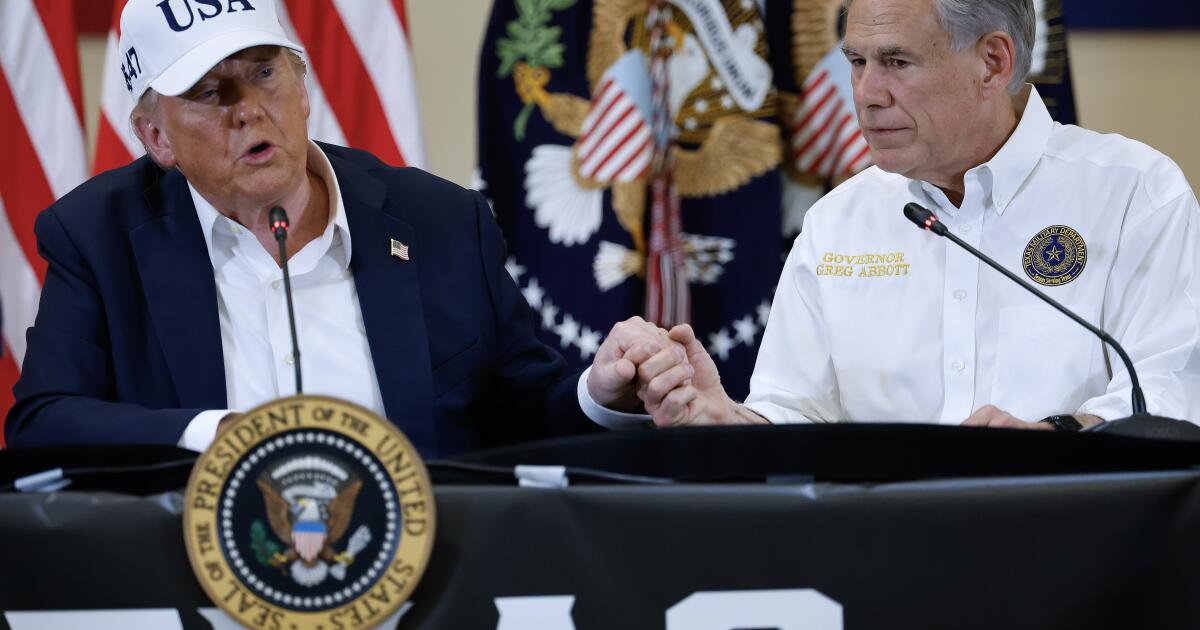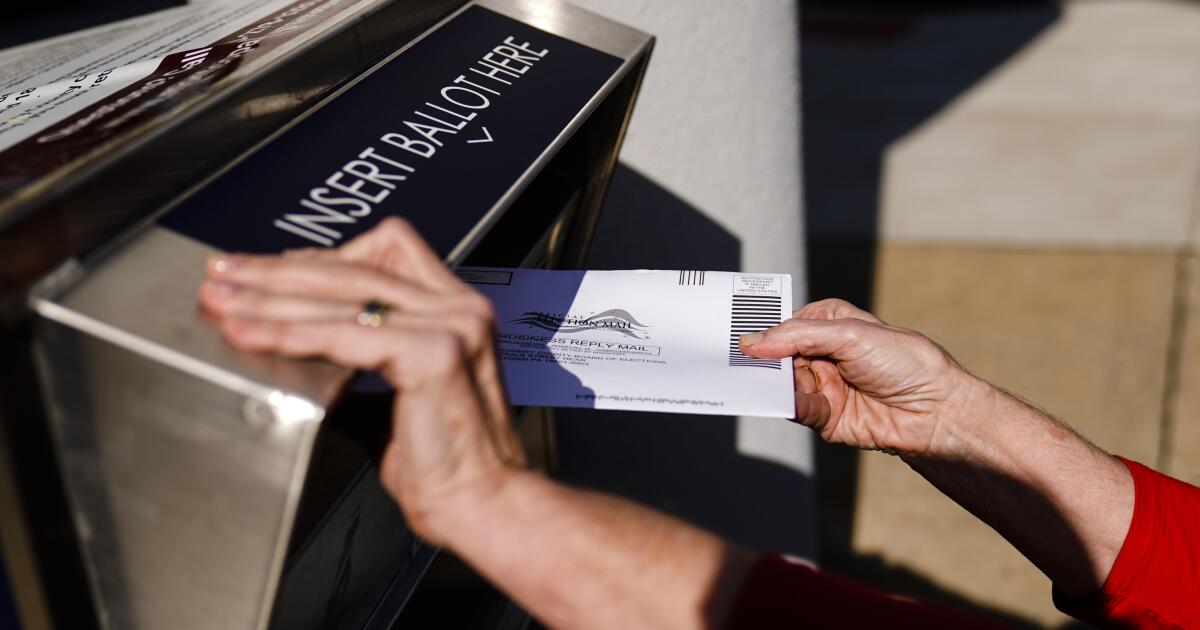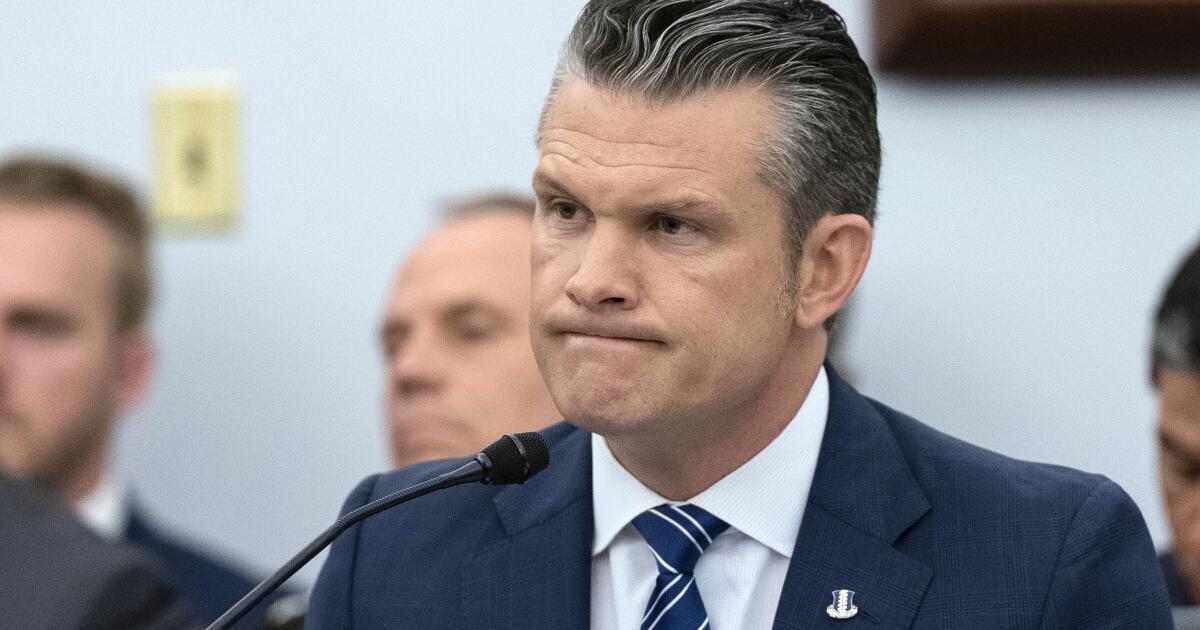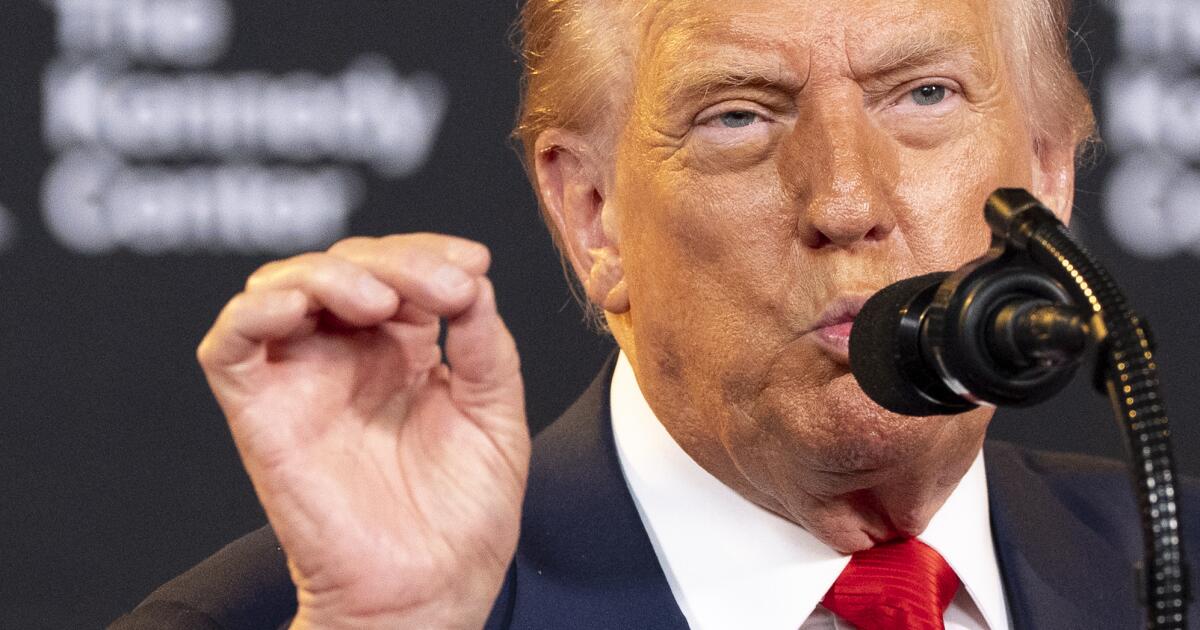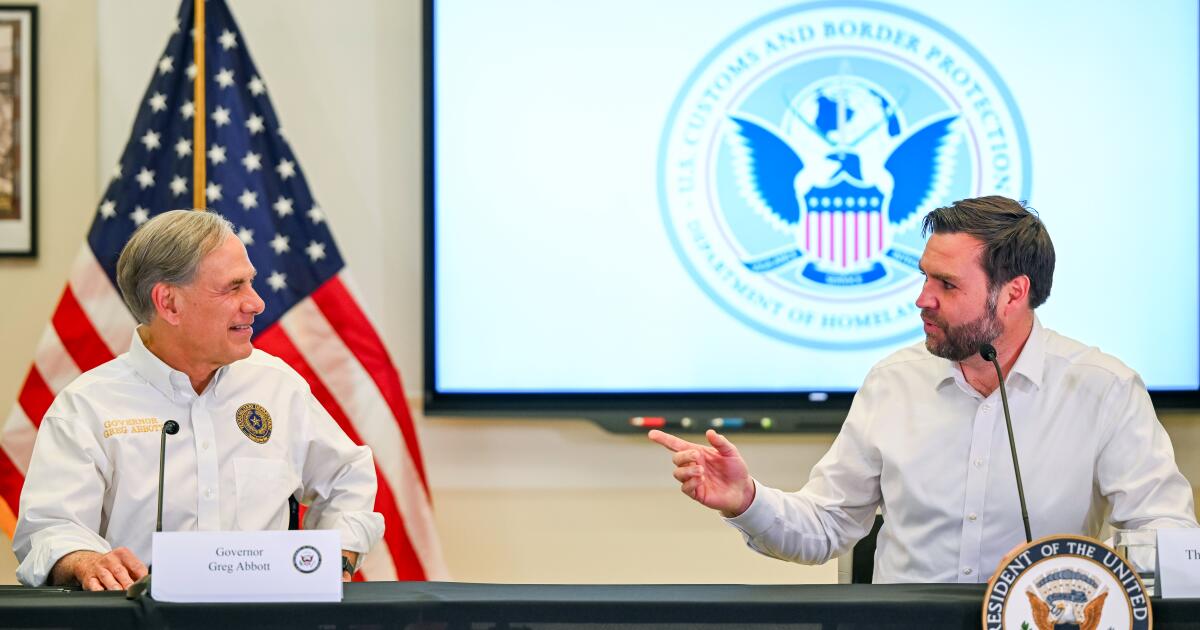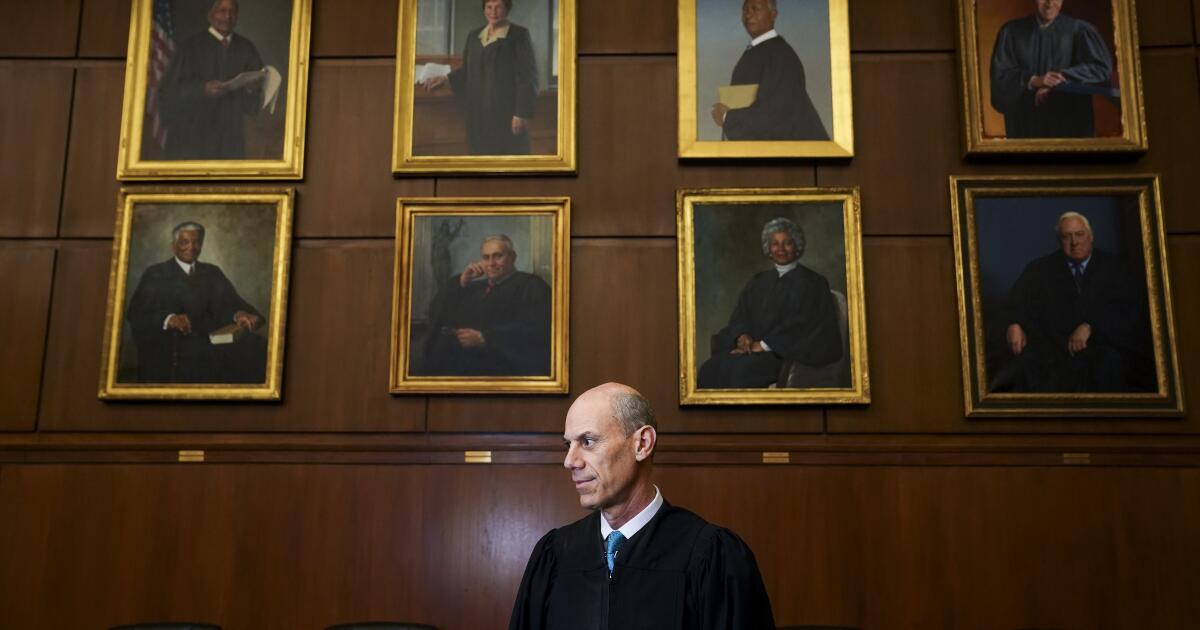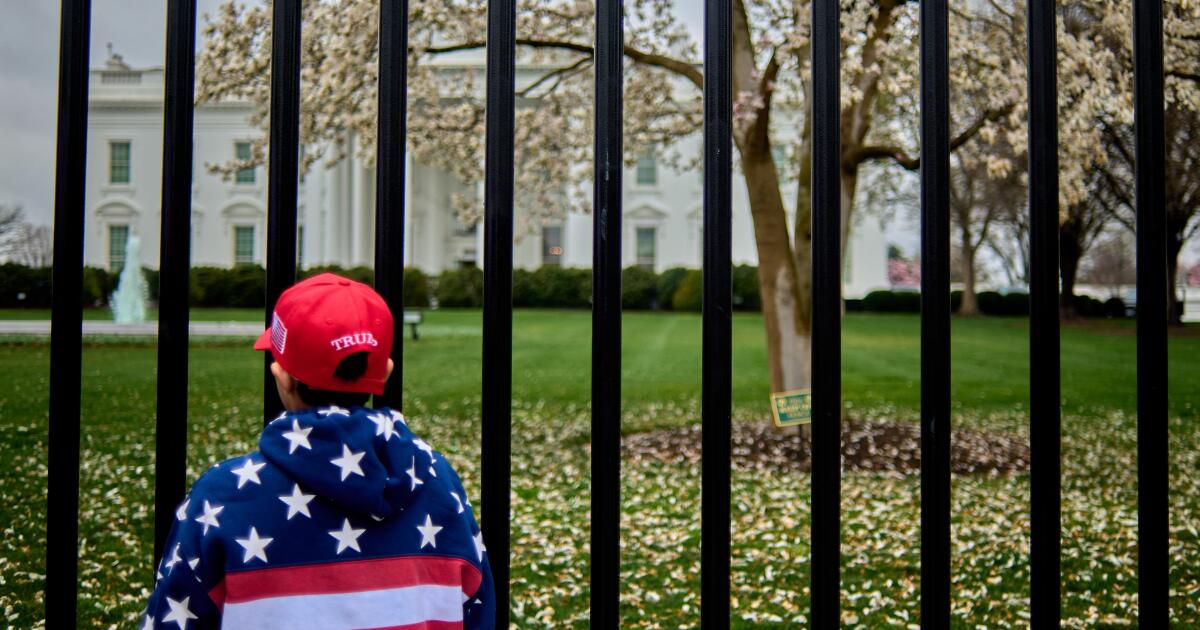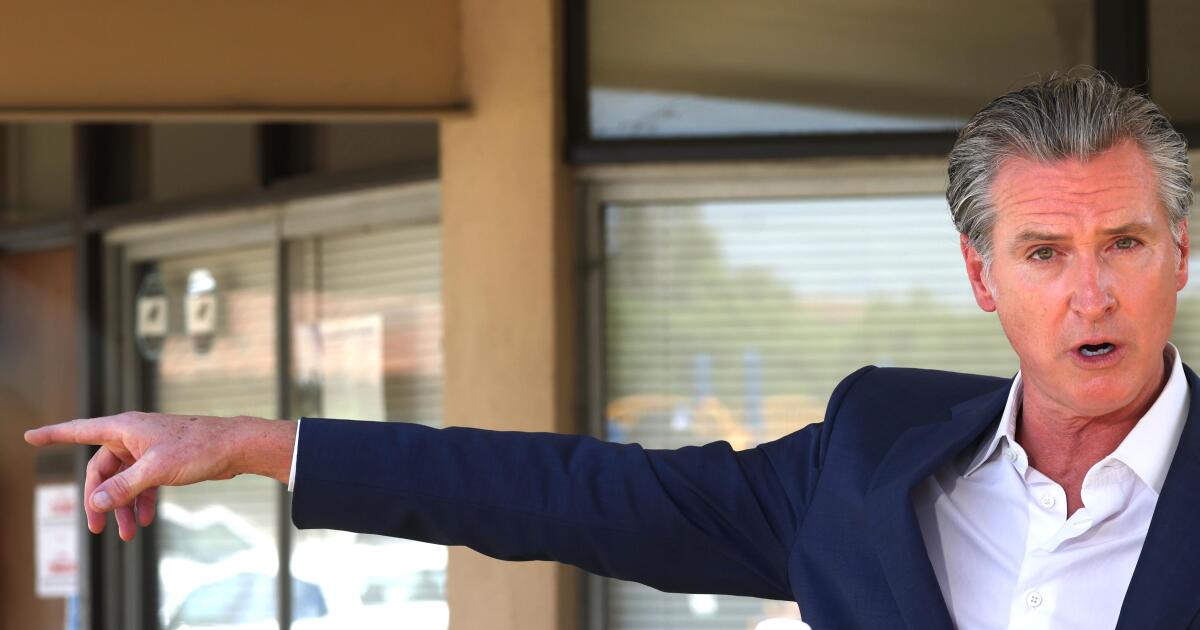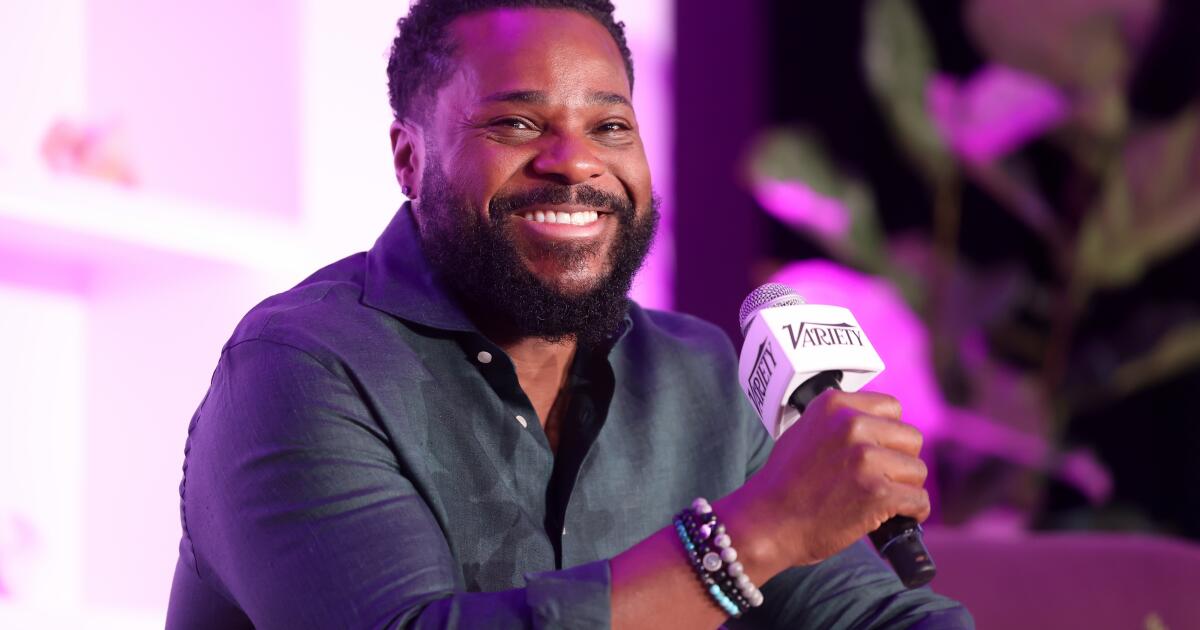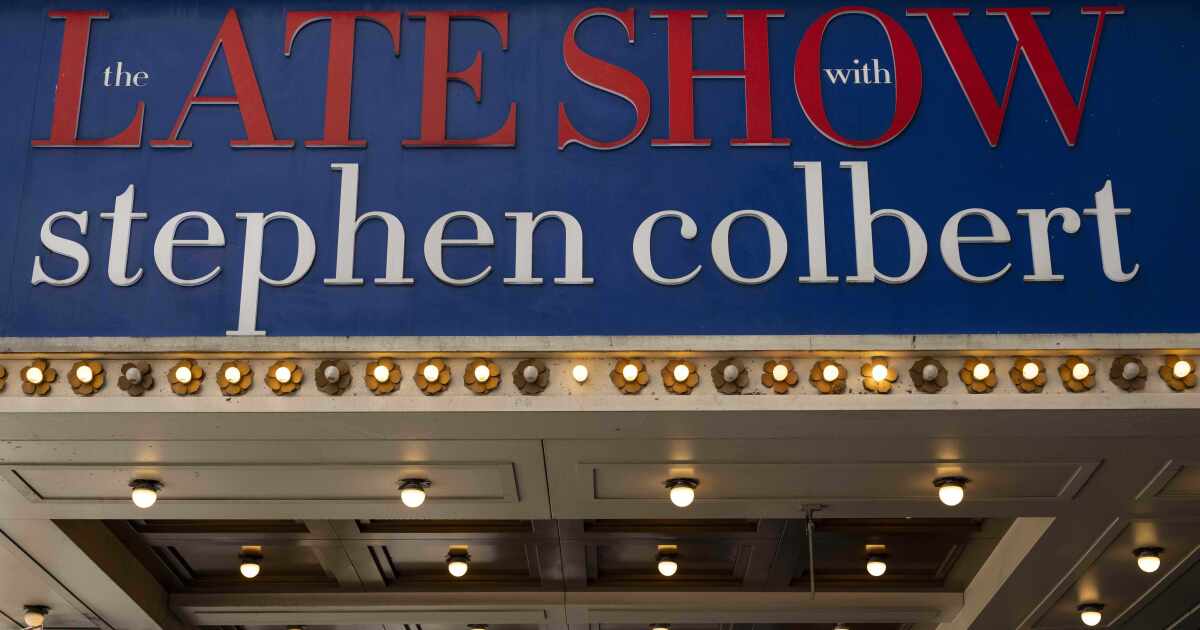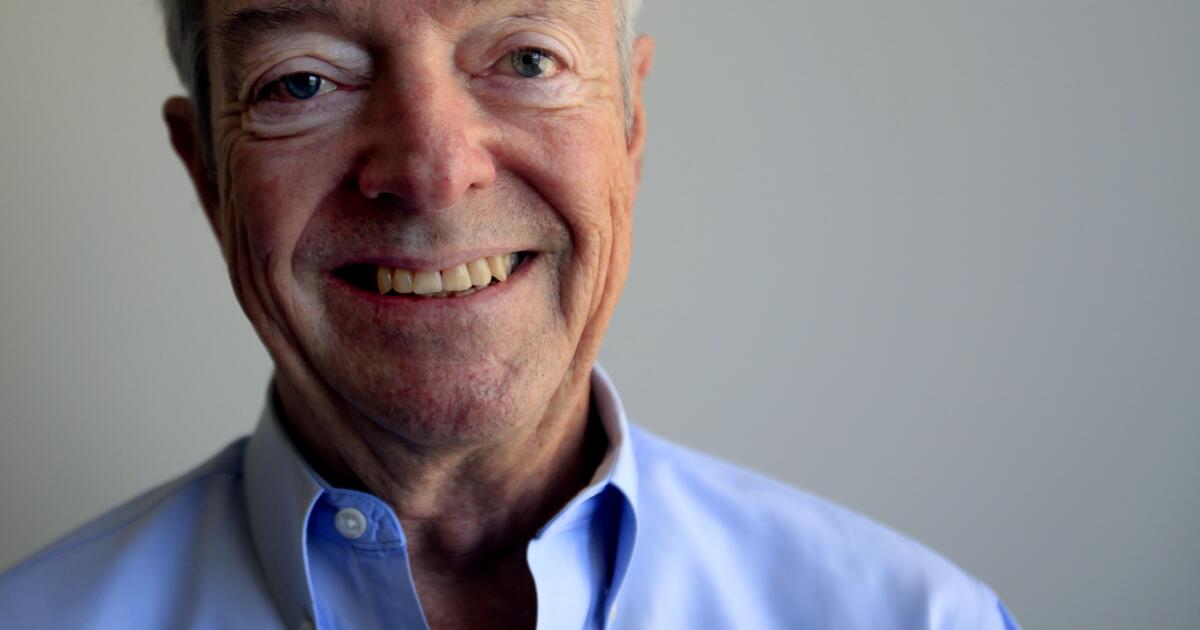Column: Trump is a redistricting bully, not a wizard
Newsletter
You’re reading the L.A. Times Politics newsletter
Anita Chabria and David Lauter bring insights into legislation, politics and policy from California and beyond. In your inbox three times per week.
You may occasionally receive promotional content from the Los Angeles Times.
SACRAMENTO — There are “Wizard of Oz” echoes in the retaliatory redistricting fight being waged by California Democrats against President Trump and Texas Republicans.
That’s mainly because of the script being followed by Republican opponents. But Democrats seem to be parroting some Oz lines, too.
That was evident last week during several tense debates by California lawmakers on legislation setting a special state election for Nov. 4 to counteract Texas’ attempts to flip five congressional seats from Democrats to Republicans.
The California measures would temporarily suspend the state Constitution to allow legislators — rather than an independent citizens commission — to redraw U.S. House districts. The Democrats’ aim is to flip five Republican seats in California and neutralize the Texas GOP’s action. Democrats already have drawn the new lines, but voters must approve them.
At stake is control of the U.S. House of Representatives after next year’s midterm elections.
California’s Legislature, after much emotional rhetoric, easily passed the Democrats’ proposed constitutional amendment and supporting legislation on party-line, supermajority votes. The bills were immediately signed by Gov. Gavin Newsom, their instigator and chief promoter. They’ll be Proposition 50 on the November ballot.
All the while, script lines from “The Wizard of Oz” movie classic kept ringing in my ears.
“Pay no attention to that man behind the curtain,” the Wizard implores Dorothy and her pals after her little dog, Toto, pulls back the curtain to reveal him as a fraud.
In Sacramento, it’s as if Republicans — and progressive do-gooders — are being admonished to pay no attention to Texas Gov. Greg Abbott, who has committed the same sins of partisan redistricting that they’re attacking Newsom for. The Texan isn’t even mentioned by California assailants of Newsom’s gerrymandering. It smacks of hypocrisy.
What Abbott’s doing is even worse by good government standards. Unlike Newsom, he isn’t seeking voter approval.
Abbott doesn’t have to, of course. In Texas, it’s perfectly legal for the legislature to rig congressional districts for partisan advantage. In California, voters banned gerrymandering of congressional districts in 2010 and turned over their drawing to the bipartisan citizens commission. Newsom needs voter permission to suspend that law.
Nationally, Democrats need to gain only a handful of seats to capture control of the House and end the GOP’s one-party rule of Washington. Trump fears that likelihood. So he pressured Abbott into engineering a legislative gerrymandering of Texas’ House districts in mid-decade, rather than wait for the normal redrawing after the 2030 census. And he’s browbeating other red state governors to likewise rig their congressional lines.
“California will not be a bystander to Trump’s power grab,” Assembly Speaker Robert Rivas (D-Salinas) said as Newsom signed the legislation. “We will not stand by while the House is hijacked by authoritarianism.”
But back to the Emerald City.
The Wizard introduces himself to Dorothy by bellowing behind the curtain: “I am Oz, the great and powerful.” Later, he breaks his word to the girl, she sees through his bullying and stands up to him, scolding: “If you were really great and powerful, you’d keep your promises.”
Trump is a great big bully whose word can’t be taken at face value because he consistently changes his mind to fit the moment. He’s clearly anti-California, holding back federal funds, assessing fines and reducing environmental protections. Newsom and Democratic leaders will repeatedly remind voters of that as the election approaches.
Unlike Dorothy, it’s a rare Republican elected official who has the courage to stand up to this power-obsessed bully. But one surprisingly surfaced during the Assembly redistricting debate.
Referring to Trump’s urging Abbott and other GOP governors to gerrymander districts, Assembly Minority Leader James Gallagher of Yuba City asserted: “He is wrong to do so.” And he added for emphasis: “Let me repeat. He is wrong…. Where does it end?”
Later, Gallagher reiterated, “My president is wrong on this point. What I don’t hear from the other side is, ‘My governor is wrong.’ ”
Gallagher and several Republicans insist — as Newsom and Democrats do — that gerrymandering should be outlawed in every state and district lines drawn by citizens’ commissions rather than self-interested legislators. But that won’t happen in the foreseeable future.
Gallagher also contended that Democrats are hyping Trump’s threat to democracy. He said they’re arguing that “in order to save democracy, we must undermine it” by committing sleazy gerrymandering.
He has a point about the Democrats’ excessive warning of democracy’s peril under Trump.
“Californians won’t stand by while Donald Trump destroys democracy,” Sen. Sabrina Cervantes (D-Riverside) declared during an oft-uncivil hearing of the Assembly Elections Committee. “If we let Trump get away with this rigging of elections, then we may not have free and fair elections in the future.”
That seems a stretch.
This and other hyperbole by several legislators of both parties reminded me of frightened Dorothy, Tin Man and Scarecrow chanting in the dark forest: “Lions and tigers and bears, oh my!”
I suspect the best pitch for Proposition 50 in this heavily Democratic state is a straight-forward anti-Trump message focused on his inhuman policies and the urgent need to restore checks and balances in Washington.
“We are going to punch this bully in the mouth,” Newsom vowed during a press conference hosted by the Democratic National Committee.
OK, but the governor should cool the Trump-like rhetoric. It probably wouldn’t impress Dorothy or — more important — her Uncle Henry and Aunt Em.
What else you should be reading
The must-read: Most California voters disapprove of Trump’s immigration enforcement policies, poll shows
The TK: The Supreme Court could give immigration agents broad power to stop and question Latinos
The L.A. Times Special: This red state fears Californians bringing ‘radical, leftist ideology.’ It’s targeting teachers
Until next week,
George Skelton
—
Was this newsletter forwarded to you? Sign up here to get it in your inbox.
